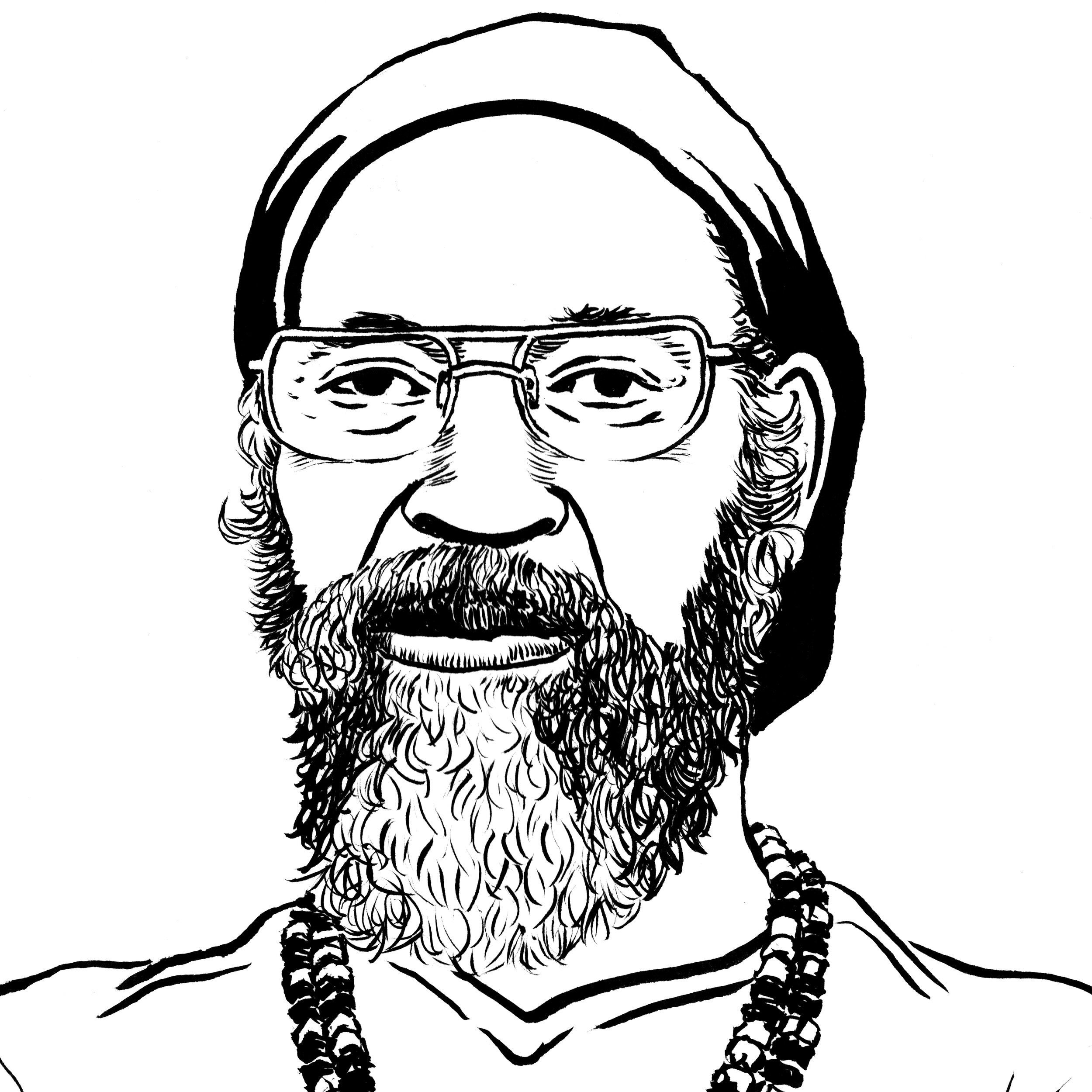Eric Karsenty, born a few months before the first ever hip-hop track was recorded, reflects on a genre he has studied through life, including multiple reads of JEFF CHANG’S “CAN’T STOP WON’T STOP” AND the opportunity to hang out with legendary hip-hop artists Q-Tip (ATCQ) and Maseo (De La Soul). Here is his playlist.
Words & Curation by Eric, artwork by Mick, design by Eva Forné (with kind permission from Rubik’s)
Block Party, 11th August 1973, 1520 Sedgwick Avenue, Bronx, New York City.
This is the date and place widely accepted as the birth of Hip-Hop. Clive Campbell, an 18-year-old Jamaican/American teenager, live-mixed two different tracks using his turntable, bringing a new music style into existence. Campbell would become popular as DJ Kool Herc, the founding father of Hip-Hop. In addition to DJ Kool Herc, Grandmaster Flash and Afrika Bambaataa were the principle pioneers who defined Hip-Hop in the 1973-1979 period and helped to break the genre into the mainstream.
Jump to 1979 and we start our playlist with the first two Hip-Hop tunes to be released, “King Tim III” by Fatback and Sugar Hill Gang. As we approached 1980, Fatback, like many black dance bands, had adopted disco's sound. Intrigued, as well, by the electricity of rapping MCs at b-boy parties, the group decided to incorporate this musical development, adding radio DJ Tim Washington as an MC alongside their live performances. Clearly, there was an audience for recorded hip-hop, as The Sugar Hill Gang revealed even further and more lucratively with the phenomenal success of "Rapper's Delight".
In a 1982 New York Times article entitled “Pop Music’s Establishment is Ripe for Change,” journalist Robert Palmer wrote “black rap music and the hard funk rhymes that go with it are a potential source for a new trend” and “one suspects that much more can be done with it”. His prediction turned out to be prescient. Following on the footsteps of Sugar Hill Records (who released Rapper’s Delight), many independent labels illustrated Hip Hop’s potential profitability as well. Enjoy Records of Harlem signed well-known artists such as Grandmaster Flash and the Furious Five, the Treacherous Three, and the Funky Four Plus One More, all featured on our playlist.
While Sugar Hill Records, Enjoy Records, and numerous other independent labels invested in Hip Hop, one major label made an interesting move by signing MC Kurtis Blow, well known throughout the mid 1970s on the local South Bronx and Harlem Hip Hop scene. Blow released several hits including “The Breaks” which became the first Hip-Hop single to go gold. By 1984, media outlets, publishing companies, and entertainment corporations had started spreading Hip-Hop culture to audiences outside of New York City. This set the stage for Def Jam Recordings to take over Hip Hop. Founded by (now legendary) producer Rick Rubin and entrepreneur Russell Simmons (who, amongst other things had done the Mercury deal for Kurtis Blow and was managing Run D.M.C), Def Jam Recordings went on to redefine Hip-Hop culture altogether and take things to another level. After becoming the first independent rap record company to sign a successful distribution deal with a major record label (Columbia), their A&R approach was bold and innovative, with a roster that started out with Beastie Boys, LL Cool J, and Run D.M.C., and later on added icons of the genre such as Slick Rick, Method Man, Redman, Warren G, and many others. They also signed controversial acts like EPMD, Public Enemy, and even a demonic rock band called Slayer in the mid 90s!
The hip hop genre then continued to grow more prominent and diverse throughout the 80s and the decision made by MTV’s to air ‘Yo MTV Raps’ in 1989 greatly influenced a monumental shift, with the music industry giving more visibility to Hip Hop & Rap artists and expanding their audience base in the white/rock dominated market. What started out as an exhibition of the historic roots of black culture and society grew into a global phenomenon, influencing people of different cultures and ethnic backgrounds throughout the world.
The rest of our playlist takes us through some iconic tracks of the Golden Age era with the first real “gangsta rap” song (Ice T ‘s “6 N The Morning”), some crossover appeal artists such as Salt’N’Pepa and DJ Jazzy Jeff & Fresh Prince, Rakim who raised the bar for lyricists with his unique flow and writing and some less obvious ones from Whodini or Dana Dane. However I had to close this playlist with a track by A Tribe Called Quest, which technically was released in the early 90s but had such an impact on me and the rest of what was going to happen in the following 20 years of hip-hop.
We’ll go deeper on this in our 90s series…

